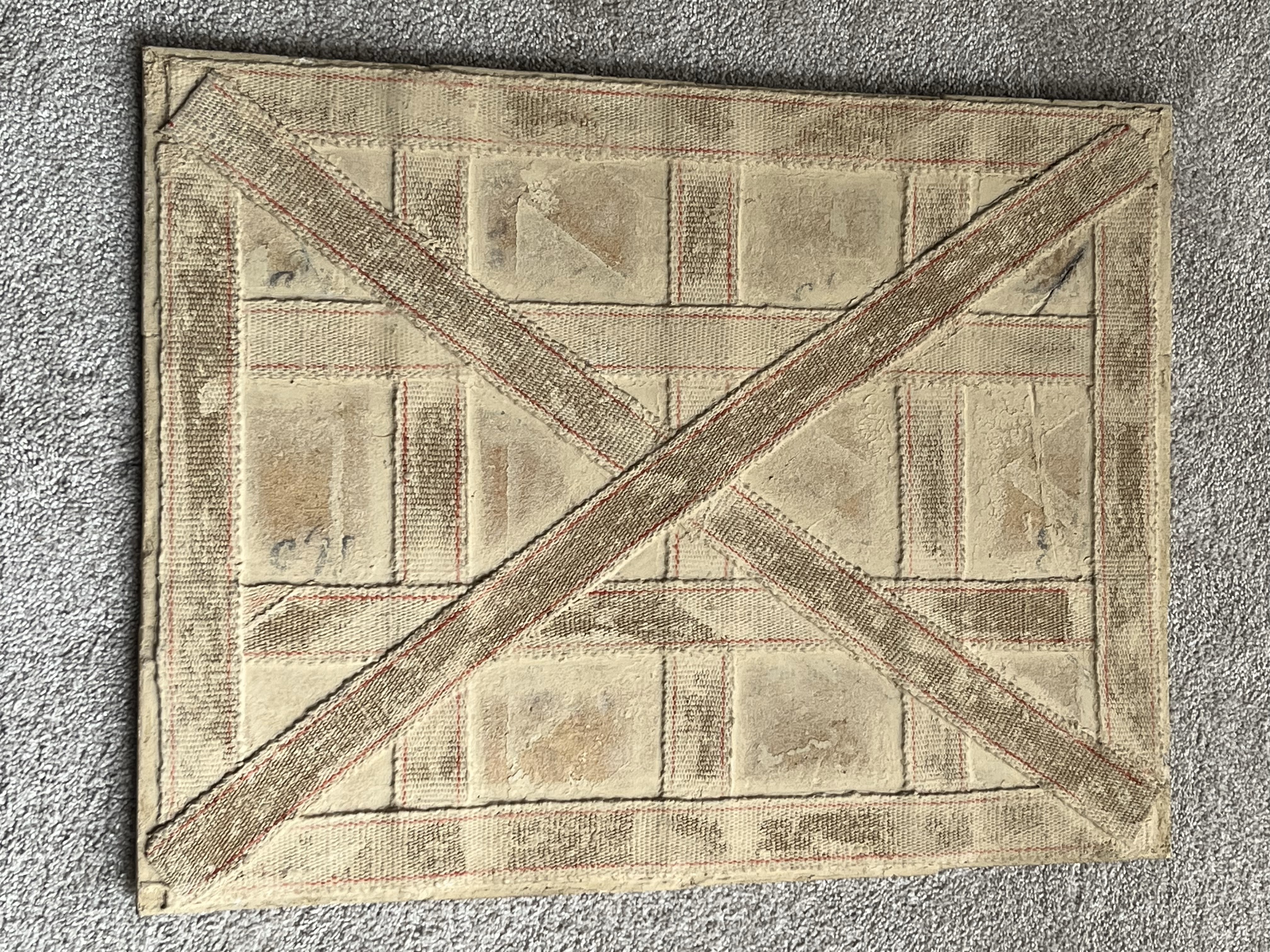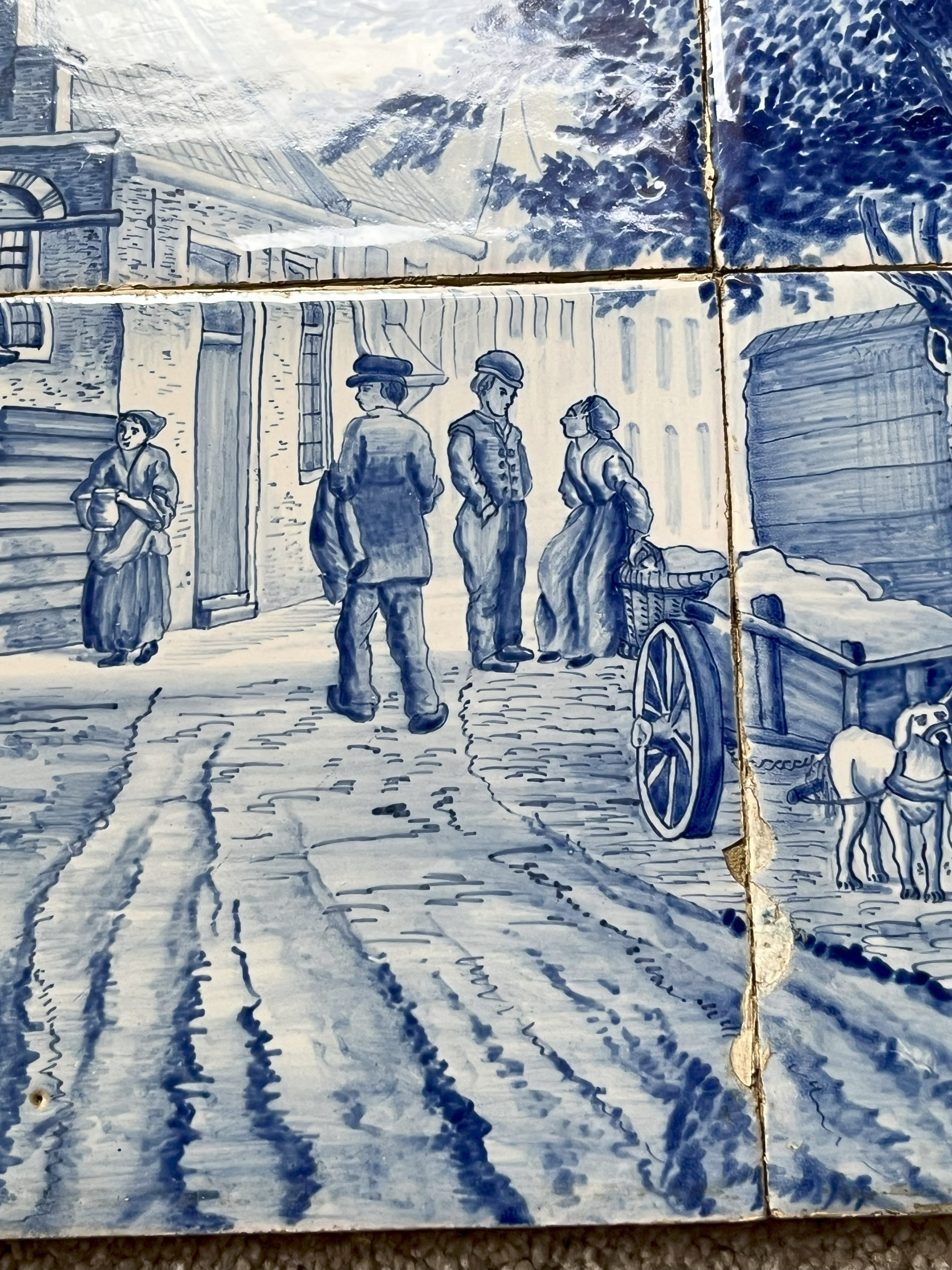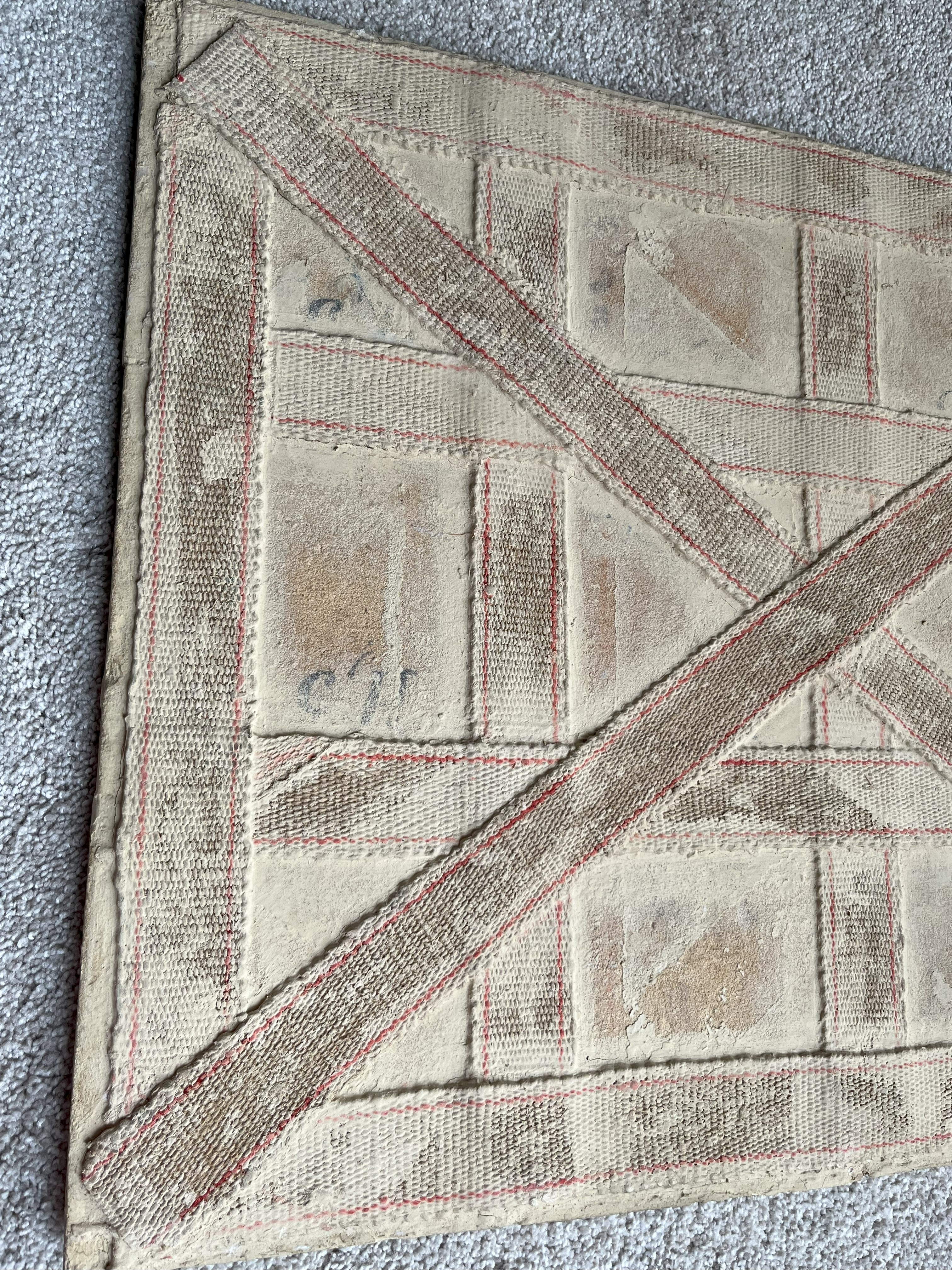Dear Rosew, what are the dimensions of the tiles. And is it possible to see the back of the tile panel?
Dear Johan, thank you for your reply. I took the tile panel out of the frame. Its dimensions are 60*45cm, and each tile is 15*15cm. The strip-like band on the back appears to be made of clay. Additionally, the street surface in the painting seems to resemble some letters, could it be the artist's signature?
Please allow me to add two more photos for your reference.
The scene is painted in the traditional technique with tin glaze on porous tiles, formed from plastic clay. The dimensions of these tiles were traditionally approximately 13 x 13 cm, from the end of the 19th century they were also made in dimensions of 6 inches (the standard size of industrially pressed tiles).
There is no signature or factory mark, but possibly a model number. I suppose first half of the 20th century in Harlingen, Makkum or Utrecht, the scene is unknown to me. Sometimes it is written below the scene: painted after ... [artist's name], that information is also missing here.
Dear Johan,
Thank you for your information!
Verdict:
Not Delftware
Analysis:
Not made in Delft
The term Delftware is only used for earthenware actually produced in Delft.
Read more
Hand-painted
An important characteristic of authentic Delftware is that it is hand-painted. Printing techniques do not occur on this earthenware.
Read more
Unmarked
An unmarked object does not necessarily mean that it is not Delftware. Only about 1/3 of all Delftware is marked.
Read more
With thanks to Johan Kamermans for his detailed response.
Add new comment
Only logged in users can post comments Log in or register to post comments
Reacties 6
Dear Rosew, what are the dimensions of the tiles. And is it possible to see the back of the tile panel?
Dear Johan, thank you for your reply. I took the tile panel out of the frame. Its dimensions are 60*45cm, and each tile is 15*15cm. The strip-like band on the back appears to be made of clay. Additionally, the street surface in the painting seems to resemble some letters, could it be the artist's signature?
Additionally, the street surface in the painting seems to resemble some letters, could it be the artist's signature? 
Please allow me to add two more photos for your reference.
The scene is painted in the traditional technique with tin glaze on porous tiles, formed from plastic clay. The dimensions of these tiles were traditionally approximately 13 x 13 cm, from the end of the 19th century they were also made in dimensions of 6 inches (the standard size of industrially pressed tiles).
There is no signature or factory mark, but possibly a model number. I suppose first half of the 20th century in Harlingen, Makkum or Utrecht, the scene is unknown to me. Sometimes it is written below the scene: painted after ... [artist's name], that information is also missing here.
Dear Johan,
Thank you for your information!
Verdict:
Analysis:
With thanks to Johan Kamermans for his detailed response.
Add new comment
Only logged in users can post comments
Log in or register to post comments